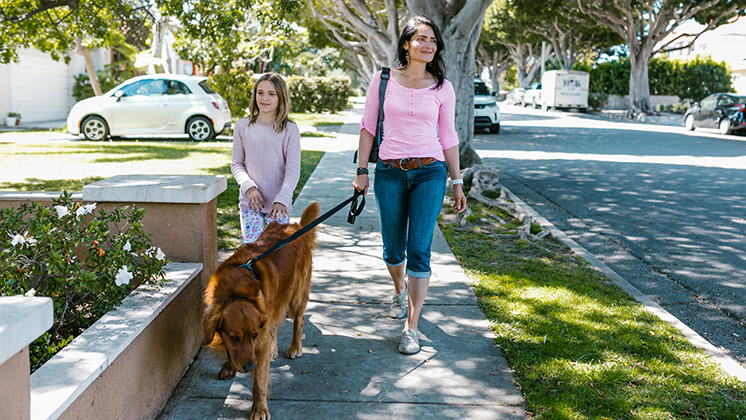How Service Dogs Transform the Lives of Families with Autistic Children

Imagine a companion that not only supports a child with autism but could positively reshape the dynamics of an entire family. That’s the story behind service dogs for autistic children, as explored in a recent study. This research delves into how these unique interventions influence families, offering a blend of emotional support, social bridges, and stability in ways you might not expect.
Key Takeaways from the Study
- Enhanced Social Interactions: Service dogs serve as more than just a comfort to the child—they’re social connectors. Families reported that these dogs acted as "social bridges," encouraging interactions between the child and peers. Whether at school or in public spaces, the dog’s presence made others more approachable and patient, reducing stigma and fostering inclusivity. One parent noted how the dog became a magnet for friendly attention, breaking the ice and making social encounters easier.
- Emotional Support and Stability: Within the family unit, service dogs offered a source of calm and companionship. They helped regulate emotional responses not only for the autistic child but for parents and siblings as well. The dogs’ natural ability to sense when someone needed comfort added a layer of emotional resilience to family life. For example, a dog might instinctively lie beside a distressed child, providing deep pressure that eases anxiety.
- Positive Family Dynamics: These furry friends contributed to better interactions among family members. Their presence turned routine moments into opportunities for bonding, with activities like walks, playtime, and grooming sessions fostering togetherness. Families often viewed the dog as an integral member, akin to a sibling, creating shared experiences that strengthened their collective spirit.
- Individualized Help for the Child: Beyond social and emotional benefits, the study highlighted how service dogs tailored their support to the unique needs of each child. Whether through assisting with chores, enhancing the child’s sense of independence, or even improving physical coordination, these dogs adapted to provide more than what traditional interventions could.
Challenges and Considerations
The study also touched on some hurdles, such as the responsibility of dog care and potential worries over future expenses. However, participants overwhelmingly cited the benefits as far outweighing any negatives. High training standards for these service dogs played a pivotal role in their success, ensuring a smooth integration into family life.
Final Thoughts
Service dogs for autistic children do more than aid the individual child—they enhance the family unit’s overall functioning. They break down social barriers, build resilience, and inject joy into everyday life. As service dog placements grow in popularity, these findings highlight the importance of understanding the broader, family-wide impacts.
For families considering this option, the study provides hope that a well-matched service dog can be a powerful partner in navigating the complexities of autism, turning challenges into moments of connection and strength.
Read the Research Paper
This article was based on the research of Dr. Leanne Nieforth and the HAPI lab. Read the research:
Suggested Articles

How Service Dogs Impact the Stress Response in Veterans with PTSD
Learn how service dogs may improve the stress response in veterans with PTSD by enhancing the cortisol awakening response, offering both emotional and physiological benefits.
Read more
Anthropomorphizing in Equine-Facilitated Learning and Psychotherapy
Anthropomorphizing in equine-facilitated learning and psychotherapy can aid human healing but may misrepresent horse behavior; a 2025 study urges therapists to use critical reflexivity to balance empathy with accurate equine understanding, ensuring ethical and effective EFL/P practices.
Read more
Do Psychiatric Service Dogs Improve Sleep for the Partners of Veterans with PTSD?
Discover how psychiatric service dogs impact the sleep quality of partners of veterans with PTSD in this insightful study.
Read more
